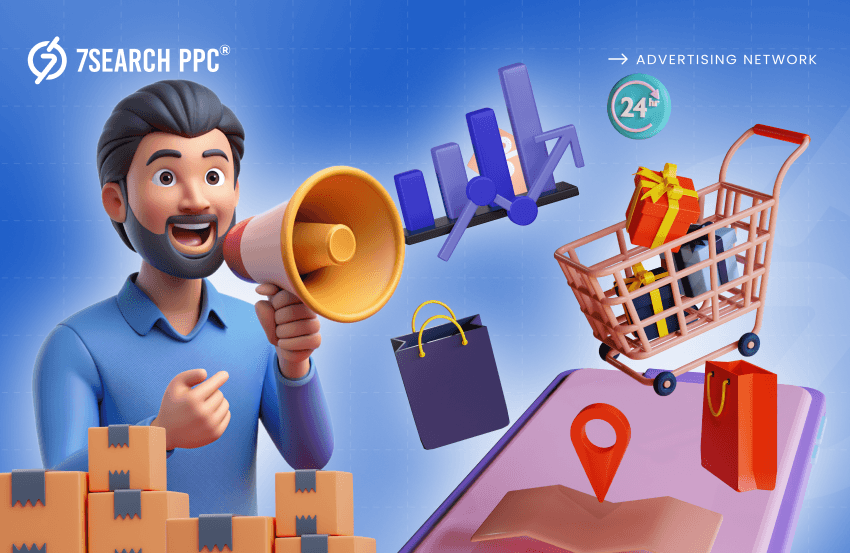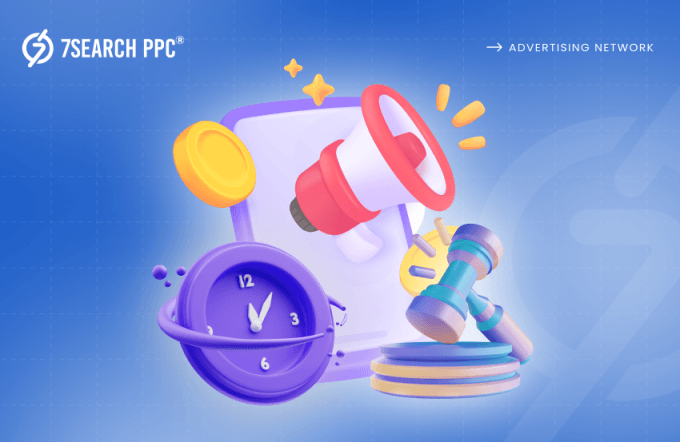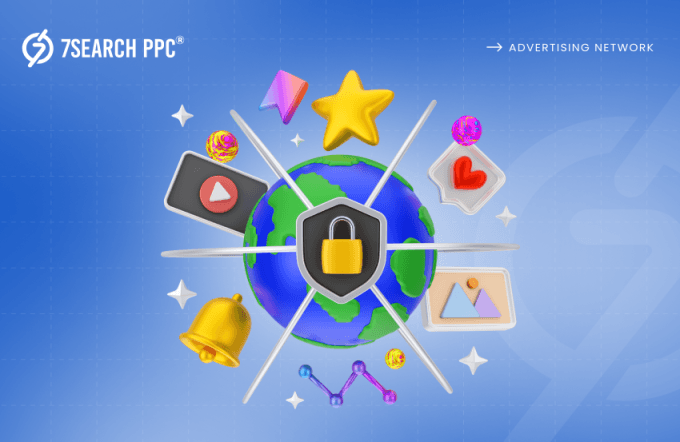Have you ever dreamed of starting an online store? Or you may already have one but aren’t seeing the sales you’d hoped for. Friend, the stage that you are at is the same stage where giant e-commerce companies such as Amazon, Alibaba, and Walmart started their groundbreaking journeys.
Now, the whole world not only knows their name but also uses their e-commerce platform for seamless shopping experiences. The mindblowing sales figures speak for themselves—Amazon made almost 575 billion US dollars in net sales around the world in 2023.
The sales number is impressive, and other e-commerce companies are also performing well. That’s all because they focused on effective Ecommerce marketing strategies.
They promote their offerings through eCommerce ads and motivate their customers through personalized recommendations and convenient shopping features. These companies have a large portion of a customer base, but it does not mean that you don’t have the opportunity to establish your own brand identity. You can also make your ecommerce store shine by applying innovative marketing tactics.
In this blog post, we will delineate 8 simple and innovative ways that you can utilize to promote ecommerce stores.
Ecommerce Marketing: A Crash Course
Ecommerce marketing is a tactic that businesses use to promote their offerings through various channels. This tactic is beneficial for increasing sales, boosting brand visibility, and reaching a wider audience. Sometimes, it works well for businesses, and sometimes, this tactic needs modification for optimal results.
The aim of the eCommerce marketing approach is to educate audiences about new launches, offers, and product updates. For instance- eBay, a big name in the e-commerce industry, utilizes effective ecommerce marketing to inform customers about their latest products and promotions.
The Competitive Advantage: Why You Need Ecommerce Marketing
Ecommerce marketing offers many benefits for businesses looking to broaden their online presence and boost sales. Here are some key advantages;
Worldwide Reach
The time has gone, my friend, when you totally depend on a specific location for the promotion of your products and services. With the help of eCommerce marketing, you can quickly expand your reach from a domestic location to an international corner. You can easily showcase your offerings and connect with a global audience.
Increase Brand Awareness
If we ask you about which e-commerce platform you are aware of, then you might say “Amazon” without taking so much time. Right? That’s the power of brand awareness. Effective eCommerce marketing helps businesses increase brand awareness. In that way, when an audience thinks of buying something online, then your brand immediately comes to their mind.
Shows You Are Legitimate
Suppose you’re meeting someone new for the first time. You want them to trust you and believe you are a good person. But they can’t believe you until you show something that proves you are trustworthy. Ecommerce marketing works in a similar way. It helps businesses by convincing customers that their e-commerce company is reliable in the industry. This can involve things like;
- Showing positive reviews
- Providing clear product information
- Echoing their brand name through consistent online advertising.
The more you can convince people you are legitimate, the more likely they are to feel comfortable buying from you.
More Profits
Ecommerce marketing boosts profits for businesses. By catching more customers to your online store and convincing them to buy your products, you increase your sales. There are other ways to improve profit, too, like offering discounts on combo purchases or free shipping options. Ultimately, eCommerce marketing helps you reach more people and convert them into paying customers, which means more profit for your business.
Lead Generation
Generating leads is one of the foundational steps in expanding an e-commerce business’s customer base and driving sales. Effective eCommerce marketing generates leads for the business through various subsets. These subsets include;
-
- Search Engine Optimization (SEO)
- Pay-per-click (PPC) Advertising
- Content Marketing
- Social Media Marketing
- Email Marketing
Drives Traffic
Why do e-commerce businesses need marketing? It is for boosting sales and earning profits, right? It can only be possible when businesses drive traffic to their website. This is another benefit that businesses get through consistent ecommerce marketing.
It invites traffic in two ways: The first one is organic (SEO), and the second one is through paid campaigns (PPC ads, social media marketing). No matter where the traffic is coming from for the e-commerce business, a good volume of traffic gives a better chance of converting visitors into customers.
Types Of Ecommerce
E-commerce, or electronic commerce, encompasses various types of business models. Here are some common types;
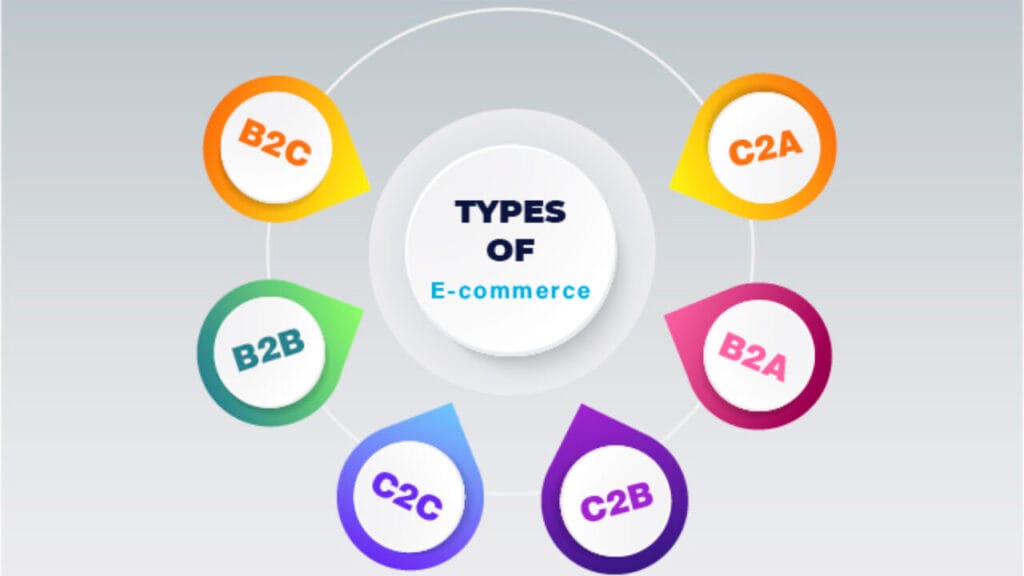
Business-to-Consumer (B2C)
This is the most common type of e-commerce, in which businesses promote and sell their offers directly to consumers. This model typically involves retailers, online stores, and service providers offering goods or services to the general public. It’s all about the direct connection between the company and the end user. They reach you through eCommerce marketing and websites where you usually shop. Examples of B2C businesses include;
- Amazon
- eBay
- Walmart
Business-to-Business (B2B)
This type of e-commerce involves the trading of products and services from business to business. B2B deals are typically larger and more complex than B2C deals. In this model, businesses trade their products and services with other businesses for the motive of resale or internal use. We can take the example of an automobile company that purchases the parts needed to manufacture vehicles from various suppliers.
Business-to-Government (B2G)
The government also acts as a customer who takes services from other companies. These companies offer their services and help governments in various sectors, such as infrastructure, technology, and consulting. This model is different from other types of e-commerce models.
In this model, the government does not directly invite companies for transactions. The government takes applications from companies that want to offer their services. After that, they take part in the bid. The contract goes to the company with the best offer.
Many companies that offer their services to the government often face;
- Long Periods For Making Sales
- High Prices For Each Transaction
- Very Strict Rules They Must Follow
Consumer-to-Consumer (C2C)
C2C e-commerce is like a virtual marketplace. In this marketplace, individuals sell directly to other consumers. Instead of selling to a store, people sell their used items directly to other people through websites or apps. This is different from buying from a company (B2C) where the business sells new or used items. C2C platforms facilitate these transactions by connecting buyers and sellers. However, they often don’t handle the actual exchange of goods or guarantee quality. Examples of C2C platforms are;
- eBay
- OLX
- Facebook Marketplace
Consumer-to-Business (C2B)
C2B is just the reverse of the B2C business model. Instead of buying from businesses, individuals sell their services (like freelance work or creative content) directly to companies that need them. Suppose a photographer sells their self-clicked photos to a stock photo website—that’s C2B! These platforms can connect businesses with;
- Freelance writers
- Graphic designers
- Photographers
- Other skilled individuals
This allows businesses to find talent for specific projects and helps individuals find clients for their skills. Examples of C2B platforms are;
- Fiverr
- Shutterstock
- Upwork
Consumer-to-Government (C2G)
Customer-to-Government (C2G) refers to interactions where individuals or businesses engage directly with government entities for services, information, or transactions. They can do this
- Online
- On apps
- By visiting in person.
It’s all about citizens and customers dealing with the government to get what they need. Here are some examples of consumer-to-government (C2G) such as filing taxes, renewing licenses, or reporting issues.
Get More Customers: 8 Winning Ways To Promote Your Ecommerce Store
Promoting an eCommerce store effectively requires a combination of strategies to engage your ideal audience and drive sales. Here are some effective ways to promote your online store;
PPC Advertising
Are you looking to promote your ecommerce store within your budget? Try PPC advertising. It’s a clever way for eCommerce stores to reach people interested in their products, bringing more visitors to their websites. With PPC, businesses can show their ads to the right people, showcase certain products, and see how well their ads are doing. The benefits of utilizing PPC in e-commerce marketing efforts are;
- Boosts Sales
- Enhances Brand Awareness
- Improves Credibility
It also maximizes ROI by targeting interested audiences who are actively looking for relevant products or services. It’s a quick way to reach new audiences but requires careful budgeting and campaign management.
Search Engine Optimization (SEO)
Some advertisers trust organic traffic more than paid ones. Are you also on the same page? Then, you should focus on SEO strategy. This is the process of refining your website to rank at the forefront of search engine result pages (SERPs) for relevant keywords.
Organic traffic is absolutely free, but it takes lots of time and effort. By using relevant keywords throughout your product descriptions and website content, you increase your chances of potential customers finding your e-commerce website when they search online.
Social Media Marketing
According to the analysis conducted by the Kepios team, there were 5.07 billion social media users worldwide at the start of April 2024. This figure represents 62.6 percent of the total global population. Over the past 12 months, the number of social media users has increased by 259 million. This accounts for an annualized growth rate of 5.4 percent, which is an average of 8.2 new users joining social media every second.
The latest data reveals that more than 9 in 10 internet users now utilize social media every month. These data shed light on the effective eCommerce marketing strategy that you can utilize to engage users around the world.
In order to engage your target audience, it is advisable to construct a strong presence on leading social media platforms, including Facebook, Instagram, or Telegram. By leveraging tools like an AI video editor, you can easily create and share engaging content such as:
- Product demos
- Promotional deals
- Informative content
Social media provides an effective way to directly engage with potential customers, which in turn can help build brand loyalty and drive sales.
Content Marketing
Content marketing is a remarkable marketing technique that involves strategically creating and sharing relevant content with a specific target audience. Studies and research have consistently shown that e-commerce companies of all sizes use content to;
- Build brand recognition,
- Educate their audience,
- Drive revenue.
To construct trust with your potential customers and establish yourself as an authority in your field, it’s important to create valuable content that educates or entertains your ideal audience. This content could take the form of;
- Blog posts
- Infographics
- Videos
It’s important to note that the content should not directly promote your products. Instead, the focus should be on providing interesting and engaging information. This strategy will keep your potential customers interested and engaged with your e-commerce brand. By doing this, you’ll be able to stay top-of-mind with your audience and build lasting relationships that can translate into long-term business success.
Influencer Marketing
This marketing technique is one of the most utilized techniques by e-commerce advertisers nowadays. You can also consider collaboration with social media personalities or bloggers who have a following that matches your target audience. These influencers can promote your e-commerce offerings through the following;
- Sponsored posts
- Reviews
- Social media mentions to their audience
By doing so, you can leverage the influencer’s popularity and reach to increase brand awareness and sales through a trusted source.
Email Marketing
“Get a flat 50% off on the purchase of electronic items from our online store. This offer is only for you, so hurry up.” You might get this type of email regularly. This is part of the eCommerce marketing strategy that advertisers utilize to promote their offerings to a targeted audience.
You can create a catalog of subscribers interested in your products. Then, send targeted email campaigns with special offers, new product announcements, or educational content. This effective strategy offers various benefits, such as;
- Generates Leads
- Retargeting
- Enhances Growth
Podcasts
When you’re on Instagram, you might see videos talking about a product or sharing cool experiences. E-commerce advertisers do this to get more people interested and trust them, which is good for business. You can try this strategy to promote your online products. Podcasts are another cool way to reach people who really care and give them useful info to build trust and make your brand famous.
By partnering with a podcast that your target audience listens to, you can promote your products in a natural and informative manner. Here are some advantages of using podcasts.
- Audience Engagement
- Targeted Audience Reach
- Content Flexibility
- Multi-channel Promotion
Affiliate Marketing
Are you aware of affiliate marketing? If not, then don’t worry. We will tell you about this fabulous eCommerce marketing strategy. This strategy is all about giving a small part of the profit to the promoter as a commission for promoting your offerings through their platform.
They encourage their followers to go through the provided link and make a purchase. Each successful purchase will increase your sales number and profits. By doing so, affiliates can earn a commission for every sale that is generated through their unique referral link. It offers several advantages, such as;
- Expanded Reach
- Increased Credibility
- Diverse Marketing Channels
- Performance-Based Metrics
This strategy expands your reach by leveraging the audience of established websites and provides affiliates with an incentive to promote your products.
Top Ecommerce Marketing Agencies
Now that you understand every detail related to your e-commerce business, we see you need a trustworthy marketing agency to boost it. Here are some top choices you can team up with;
7Search PPC
7Search PPC is an eCommerce marketing agency that’s well-known in the industry. They provide advertising solutions that are designed for the eCommerce industry. One great thing about this advertising agency is its affordability. All types of e-commerce advertisers can utilize this advertising agency. It works on a PPC model, which means pay-per-click. So, you only pay a bit when someone clicks on your ads.
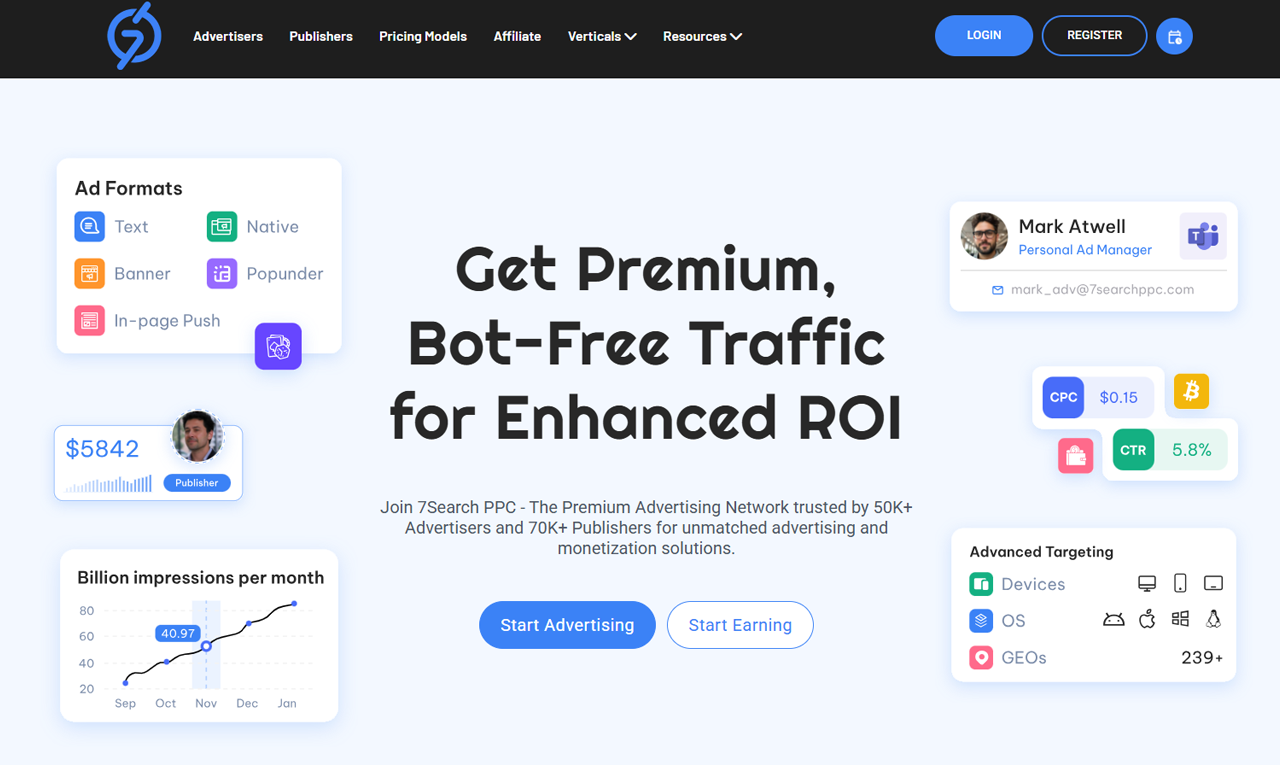
Its user-friendly interface allows advertisers to start their campaigns seamlessly. It also offers engaging ad formats, including;
- Text ads
- Banner ads
- In-page Push ads
- Popunder ads
- Native ads
Our eCommerce marketing agency believes in transparency, which is why we are the top choice among advertisers. We offer robust analytics tools so advertisers can monitor the performance of their e-commerce ad campaign in real-time.
Sellozo
Sellozo is a company that stands out in eCommerce marketing by offering special Amazon PPC management services. What sets them apart is how they use both advanced technology and smart human strategies. Their team of experts in the US knows their stuff when it comes to creating and running ad campaigns that really help businesses grow.
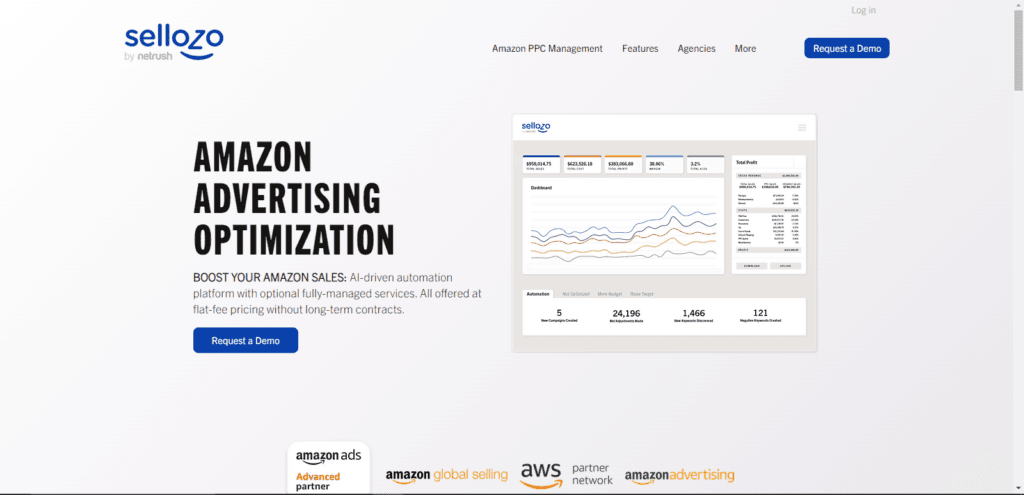
- It offers a range of key eCommerce marketing services, including;
- Developing strategies
- Setting up comprehensive campaigns
- Discovering Advanced Keywords
WEBITMD
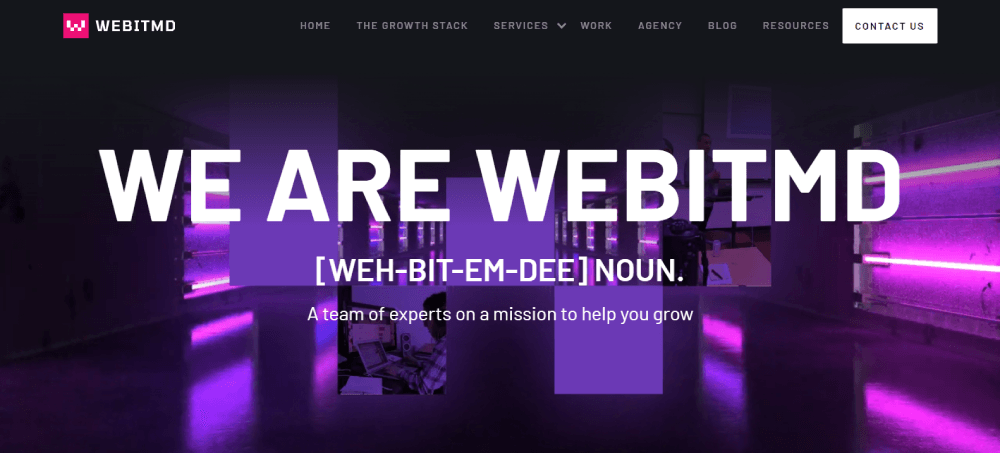
Another eCommerce marketing agency you can check out is WEBITMD. They’re really good at digital marketing and help businesses grow online. They focus on promoting and selling products or services using different online platforms.
Conclusion
Promoting your ecommerce store is very important for it to do well. It helps your business reach more people, get known better, and sell more stuff. There are lots of ways to do it, like PPC advertising, SEO, and teaming up with good advertising agencies like 7Search PPC. Picking up the perfect strategy and using it well can really help your online store grow and hit your sales goals.
Frequently Asked Questions (FAQs)
How would you define ecommerce marketing?
Ans. Ecommerce marketing is a promotional approach that is utilized by businesses to attract customers and drive sales through online channels.
Why should I prioritize promoting my online store?
Ans. If you have an online store, it’s really important to advertise your products and services. Doing this helps you make more money and sell more by reaching relevant people and letting them know what you offer.
What are some proven strategies for boosting visibility and sales for my ecommerce store?
Ans. To get more people to notice and buy from your online store, try these effective tactics: make sure your website pops up in search engines, use social media, run ads, make interesting content, and partner with influencers.
Which strategies should I employ to enhance my website’s SEO and boost its visibility on search engines?
Ans. You can enhance your website for search engines by using the appropriate keywords in your product descriptions, meta tags, and web addresses. Also, speed up your site, generate quality backlinks, and make it easy to use on mobile devices.
What methods can I use to gauge the success of my e-commerce marketing efforts?
Ans. You can gauge the performance of your e-commerce marketing efforts by looking at how many people visit your website, how many of those visitors actually buy something, how much money is made from sales, how much money is earned compared to what’s spent, and how many customers keep coming back.


